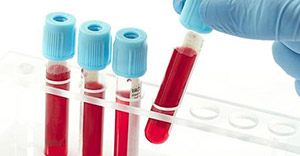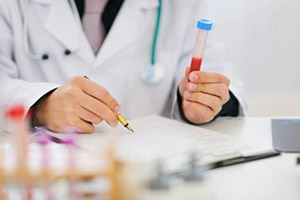 IVF programs using donor sperm or oocytes (eggs) are used for many indications. The donor's seminal fluid is used if the husband does not have sperm in the ejaculate (azoospermia) and severe hereditary diseases. The need to use donor oocytes may be associated with natural menopause, gonadal dysgenesis, decreased ovarian reserve, etc.
IVF programs using donor sperm or oocytes (eggs) are used for many indications. The donor's seminal fluid is used if the husband does not have sperm in the ejaculate (azoospermia) and severe hereditary diseases. The need to use donor oocytes may be associated with natural menopause, gonadal dysgenesis, decreased ovarian reserve, etc.
Before joining the IVF protocol, women undergo a full-fledged diagnosis with a number of tests. Based on the results of the examination, the reproductive specialist assesses the readiness of the female body to conceive and carry a pregnancy. In the presence of diseases, the patient is prescribed treatment, the passage of which increases the chances of success in IVF.
Tests for women before IVF with donor oocytes
The most popular assisted reproductive technologies (ART) techniques include IVF with donor eggs. This technology is used for hereditary pathologies, inadequacy of one's own eggs, natural menopause, ovarian depletion, etc.
What tests does an egg donor give?
Only an absolutely healthy woman who has at least one child can become an oocyte donor. Before submitting the biomaterial to the oocyte bank, she passes a number of tests:
- genetic research;
- blood test for TORCH infection, syphilis, hepatitis, AIDS;
- a smear from the urethral and cervical canal, as well as the vagina for the purity of the flora;
- cytological analysis of a smear from the cervical canal;
- coagulogram;
- blood test (clinical, biochemical).
To prevent the occurrence of Rh-conflict, the Rh factor of both the spouse and the donor is taken into account when choosing a donor oocyte.
What tests does the patient pass before IVF with donor oocytes?
 Before entering the IVF protocol with donor oocytes, the spouses undergo a standard examination, the main part of which is analyzes. After a consultation with a gynecologist-reproductologist, patients are sent for the following tests:
Before entering the IVF protocol with donor oocytes, the spouses undergo a standard examination, the main part of which is analyzes. After a consultation with a gynecologist-reproductologist, patients are sent for the following tests:
- a blood test for common infections;
- coagulogram;
- blood chemistry;
- analysis for immunoglobulins for hepatitis, syphilis and herpes;
- analysis for TORCH infection;
- clinical blood test;
- general urine analysis;
- a smear from the urethral canal for PCR diagnostics;
- microscopic and cytological examination of biomaterial from the genital mucosa.
Laboratory studies can identify abnormalities in the functioning of the reproductive organs and assess the likelihood of a trouble-free bearing of the fetus. If necessary, the patient undergoes a course of therapy aimed at normalizing the functioning of the reproductive system and the whole body.
Tests for women before IVF with donor ejaculate
Sperm donation is used when the partner's ejaculate quality is low and he has genetic diseases. Very often, unmarried women who do not have a sexual partner resort to IVF with donor seminal fluid. Depending on the functional state of the patient's reproductive system, donor sperm can be used for ICSI, IVF or artificial insemination.
What kind of examination does a sperm donor go through?
 Fertility specialists and embryologists are responsible for the selection of sperm donors. Before the delivery of the biomaterial, they undergo a comprehensive diagnosis, according to the results of which the quality of the ejaculate and the possibility of its donor use are assessed. Male sperm donors are required to undergo the following types of tests:
Fertility specialists and embryologists are responsible for the selection of sperm donors. Before the delivery of the biomaterial, they undergo a comprehensive diagnosis, according to the results of which the quality of the ejaculate and the possibility of its donor use are assessed. Male sperm donors are required to undergo the following types of tests:
- examination by a therapist, andrologist-urologist and psychiatrist;
- cytogenetic research;
- genetic research (karyotyping);
- a blood test for general and genital infections;
- examination of a smear from the urethral canal for ureaplasmosis, chlamydia, cytomegalovirus infection, gonorrhea, herpes.
In addition, donors undergo a MAP test and a spermogram. If necessary, they are prescribed additional tests - extended spermogram, ejaculate biochemistry, sperm culture, etc.
What tests does the patient pass before IVF with donor sperm?
 As in the case of donor oocytes, women undergo standard diagnostics, which include:
As in the case of donor oocytes, women undergo standard diagnostics, which include:
- blood chemistry;
- analysis for infections;
- hemostasiogram;
- clinical blood test;
- examination of a smear for the purity of flora, etc.
If violations in the work of the reproductive organs or the endocrine system are detected, additional tests may be prescribed:
- a blood test for hormones (genital, thymus and adrenal glands);
- tumor markers;
- genetic blood test;
- immunological research;
- allergic panels;
- histological examination of the endometrium.
With the help of the listed analyzes, it is possible to identify diseases that can cause spontaneous abortion, abnormal development of the fetus or premature birth. Their identification and treatment increases the chances of successful conception and a successful course of gestation.
What other tests might you need?
 Women after 35 years old, planning to become mothers with the help of donor sperm, must additionally undergo medical and genetic diagnostics. With age, the likelihood of changes in the structure of genes increases, and therefore the risk of having children with chromosomal abnormalities increases. If during IVF it is planned to use the patient's egg, she must first pass tests such as:
Women after 35 years old, planning to become mothers with the help of donor sperm, must additionally undergo medical and genetic diagnostics. With age, the likelihood of changes in the structure of genes increases, and therefore the risk of having children with chromosomal abnormalities increases. If during IVF it is planned to use the patient's egg, she must first pass tests such as:
- karyotype analysis - a cytogenetic study that can detect structural changes in the chromosome set;
- medical and genetic diagnostics is a technique that allows you to identify violations in the structure of DNA.
Special analyzes allow predicting the likelihood of a child developing Down syndrome, cystic fibrosis, chromosome translocation, sensorineural hearing loss, hemophilia, etc.
Conclusion
Before the IVF procedure, women must pass a certain number of tests, with the help of which reproductologists assess the degree of preparedness of the body for pregnancy. In the case of using donor sperm or oocytes, the list of mandatory examinations does not change. If diseases and disorders in the work of the reproductive organs are detected, additional tests may be required. Women over the age of 35 must undergo medical and genetic diagnostics.
